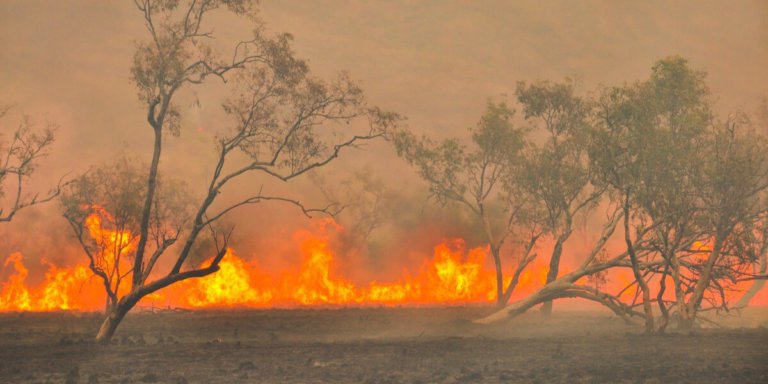
The situation caused by bushfires in Australia is turning extremely dire as fires blaze through New South Wales (NSW) and Victoria – claiming 24 human lives at the time of writing, wiping out nearly half a billion wild animals, destroying hundreds of homes and displacing thousands of people.
While Australia experiences a fire season every year during summer, this year is being called the worst in Australia’s history due to how fast and wide the bushfires have spread.
The strong winds and hot temperatures, reaching up to 48.9 degrees Celsius or 120 degrees Fahrenheit in western Sydney, have caused the bushfires to spread rapidly in Australia this year, with its smoke choking millions of Australians for weeks. Climate change is also said to have intensified the fires due to changes in weather patterns.
What does all of this mean for international students returning to university in Australia after the Christmas break?
According to ABC Australia, the bushfire smoke has been predicted to cause air pollution to drop to “very poor” and “hazardous” levels in several areas in the region. The NSW state government has declared a seven-day state of emergency, which began last Friday.
Currently, Canberra is reportedly seeing the worst air quality in the world, with the city shrouded in a thick orange haze.
Thick bushfire smoke is blanketing Canberra, shutting down shops, restaurants, museums and government departments. 📷: Lukas Coch. More: https://t.co/zn8D9l1v7q pic.twitter.com/jdlu2VoC1U
— news.com.au (@newscomauHQ) January 6, 2020
Both the Australian National University (ANU) and the University of Canberra have closed their campuses due to poor air quality concerns from the bushfires
According to a statement by ANU, “Due to the hazardous smoke conditions across the ACT and surrounds, intermittent power and ongoing threat of fire, we have decided to continue to keep the Acton, Mt Stromlo and Kioloa campuses closed to all but essential staff and those staying in residences. We are closed Monday 6 and Tuesday 7 January. Please don’t come onto campus.”
“This is the toughest of summers. We are all feeling the physical and mental health effects of the fires, smoke and heat. It is important we all care for one another and each other and draw together as a supportive community. Please don’t be afraid to seek support.”
As for the University of Canberra, an announcement on their website reads, “Due to hazardous air quality and power shortages caused by the NSW bush fires, the University of Canberra Bruce campus will be on shut-down for 48 hours effective from 5pm AEDT on Sunday 5 January to all but essential staff and residents. Updates will be provided via website and social media.”
The university advised students and staff to follow the health advice provided by Australian Capital Territory (ACT) Health Directorate, which includes not using evaporative air conditioners which draw air into the house from outside, staying hydrated and cool as well as ensuring medications for heart or lung condition continue to be taken as prescribed.
Elsewhere, university campuses remain open for now, but students are urged to stay indoors and avoid unnecessary outdoor activity in affected areas, especially if they are prone to respiratory illnesses like asthma.







